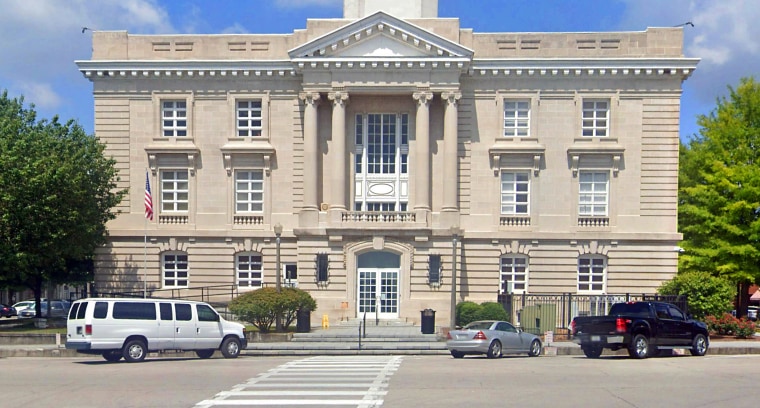A music video by country star Jason Aldean has drawn widespread attention in part for featuring a Tennessee courthouse that is known as the site of a heinous lynching that happened a century ago.
Released on YouTube on Friday, the video for the song, “Try That in a Small Town,” features Aldean and his band performing in front of the Maury County Courthouse in Columbia, the same site where a Black teenager was lynched in 1927.
Henry Choate, 18, was accused of assaulting a white 16-year-old girl. He was jailed, but a mob of hundreds of white people kidnapped him from his cell. He was tied to the back of a car and dragged across town, and eventually hanged in front of the Maury County Courthouse.

Choate was one of at least 20 Black men in Maury County to be lynched or kidnapped and presumably killed by the KKK or white mobs, according to local historian Elizabeth Queener.
Aldean’s video also includes scenes that seem to feature footage of Black Lives Matter protests, as Aldean sings lyrics such as “Cuss out a cop, spit in his face/ Stomp on the flag and light it up/ Yeah, ya think you’re tough.”
The outcry over the video, which has been viewed more than 5 million times on YouTube, prompted CMT to pull it from airing Monday.
On Tuesday, Aldean tweeted that he was wrongly “accused of releasing a pro-lynching song.” He then defended the music video, saying that “there is not a single lyric in the song that references race or points to it- and there isn’t a single video clip that isn’t real news footage -and while I can try and respect others to have their own interpretation of a song with music- this one goes too far. ”
Meanwhile, the courthouse and other sites like it have come to represent the series of lynchings that terrorized Black people throughout the Jim Crow era, and an enduring symbol of white supremacy, said Robert David Bland, an assistant professor of history and Africana studies at the University of Tennessee, Knoxville.
Beyond Choate, more than 230 Black people were lynched in Tennessee between 1877 and 1950, according to the Equal Justice Initiative.
Bland said the nation’s history of Black lynchings is often buried, with many people not even knowing that they occurred.
“We’ve never commemorated or told those stories,” Bland said. “A lot of those histories get lost in the sweep of time.”
Bland suggested adding historical markers to the Maury County Courthouse and other lynching sites throughout the state, like the site of the People’s Grocery lynchings in Memphis, where a historical marker was placed in 1991. The markers, he added, would “make it clear that something unspeakable happened in this country.” He also called for civil rights organizations to help bring awareness to the state’s history of racism.
“There’s a broader education that has to happen around lynching that both local communities, the state of Tennessee, as well as civil rights partners in the local community … need to speak to and raise awareness,” Bland said.

